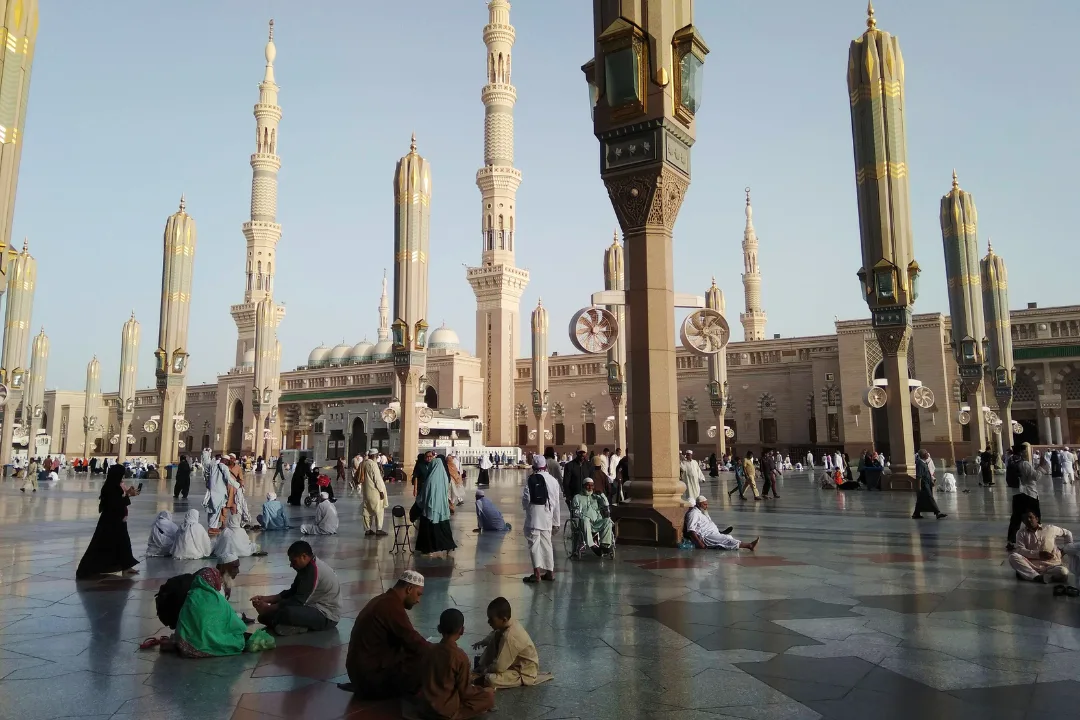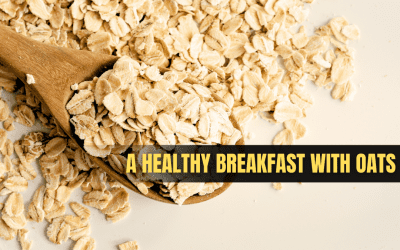Introduction
The month of Ramadan holds a sacred position in Islam and millions of Muslim adherents worldwide observe it through fasting and religious rituals as well as spiritual acts. The observed spiritual aspects during Ramadan month generate physical benefits as well as developing mental and social wellness. This study provides insight into Ramadan past practices and Islamic faith views and scientific benefits of Ramadan month fasting with examples of how Ramadan positively affects daily life.
History of Ramadan
During the time of Prophet Muhammad (peace be upon him) when the Quran was revealed Ramadan started for the very first time. The sacred status of this month is confirmed by the Quranic revelations which discuss its importance:
“The month of Ramadan [is that] in which was revealed the Qur’an, a guidance for the people and clear proofs of guidance and criterion.” (Quran 2:185)
Believers practice Ramadan month fasting because God gave them this duty to achieve self-control and spiritual awareness of Him. The religious obligations of Ramadan month fasting provide double benefits because they build both faith along with personal development.
Things Done During Ramadan Month
Fasting according to Islamic tradition lasts from dawn until sunset across the global Muslim community as it presents an opportunity for spiritual devotion through personal self-discipline. Muslims first eat Suhoor which ends at Fajr through dawn prayers. During daytime hours Muslims abstain from all consumption and abstain from smoking and sinful conduct while concentrating on their religious development and increased patience and self-control.
At this sacred time Muslims turn to devout formal prayer five times daily while reading from the Quran since it was revealed during this month. Nighttime congregation prayers known as Taraweeh bring numerous worshippers to prayer services where they offer additional evening devotionals together. The Night of Power named Laylat al-Qadr wraps up the final ten days of the month because believers consider it the most blessed and merciful time.
Sunset brings Muslim fasting to a close through Iftar meals which begin with dates accompanied by water before shared family meals. During Ramadan Muslims perform more charity activities as engaging in service for those who need assistance is strongly endorsed by their faith.
Ramadan month fasting enables believers to become better people while building good behaviors alongside seeking divine forgiveness through Allah. Muslims globally benefits of Ramadan since it leads them toward spiritual enlightenment while also creating positive effects on their body and mind as well as fostering stronger connections between individuals.
Religious Beliefs in Ramadan
Islam teaches that the spiritual things found within the month of Ramadan are important to all Muslims. Practicing daily dawn-to-sunset fasting represents religious worship which creates God-consciousness along with self-control practices. Believers embrace different religious beliefs about Ramadan which include:
- Increased Worship and Prayer – Additional acts of worship through Taraweeh prayers and expanded devotions become part of the Islamic practice to receive divine blessings and find amnesty.
- Revelation of the Quran – Ramadan stands as the month of Quran revelation since worshippers receive enhanced opportunities to engage deeply with the scripture.
- Night of Power (Laylat al-Qadr) – During the last ten days of Ramadan Night of Power (Laylat al-Qadr) offers tremendous blessings which equal worshipping for thousands of months.
- Charity and Compassion – The practice of charity through Zakat and Sadaqah donations grows stronger to assist the less fortunate during the month.
- Forgiveness and Spiritual Cleansing – Sincere fasting performance with faith results in the cancellation of sins through forgiveness together with spiritual cleaning.
- Acts of Kindness – Through the observance of Ramadan people develop compassionate tendencies and learn patience which enhances their social connections.
The practices during Ramadan month generate three primary advantages: enhanced religious ties with Allah and better self-control and a deeper spiritual connection.
Scientific Benefits of Ramadan Month Fasting
Scientific studies have proven how Ramadan month fasting produces positive effects on the body and mind besides its numerous other benefits.
- Detoxification and Metabolism Improvement – The detoxification process of the body happens better because fasting removes toxins along with excess body fat. The practice of intermittent fasting that resembles Ramadan month fasting leads to improved metabolic functions.
- Weight Management and Fat Reduction – The period of Ramadan Month works as a key tool for weight reduction. Eligant food control methods improve body metabolism while enhancing fat-breakdown abilities that reduce obesity and its associated health conditions.
- Improved Digestion and Gut Health – The digestive system receives regular maintenance during fasting thus it decreases acid reflux symptoms while minimizing inflammation and supporting healthy gut microbiota.
- Enhanced Brain Function – The act of fasting throughout Ramadan produces three effects: it enhances brain cell flexibility while lowering stress from damaging cells and making mental functions sharper.
- Regulated Blood Sugar Levels – The duration of fasting controls blood insulin levels which decreases the chances of developing Type 2 diabetes.
- Reduced Risk of Chronic Diseases – The practice of fasting during Ramadan leads to decreased chances of developing heart diseases and hypertension and high cholesterol which supports longer life expectancy.
These physical adjustments create lasting health improvements which fall under the category of benefits of Ramadan month.
Psychological Benefits of Ramadan Month
The health benefits of Ramadan month fasting produce essential advantages for both mental state and emotional contentment.
- Increased Patience and Self-Control – Self-control together with emotional strength develops when you oppose eating food or drinking water along with avoiding bad choices.
- Reduced Stress and Anxiety – Through fasting and prayer individuals achieve mindfulness status while their bodies decrease stress hormones and boost their serotonin production levels.
- Stronger Social Bonds – People who observe Ramadan create stronger relationships because they gather together during communal Iftar events and prayer times.
- Improved Sleep Patterns – Body rest becomes more efficient through fasting as it controls natural sleep patterns and body rhythms.
Social and Moral Benefits of Ramadan
Ramadan fosters a sense of unity, generosity, and moral consciousness in society. Social and ethical aspects of the Ramadan Month bring the following advantages:
- Empathy for the Less Fortunate – Experiencing hunger and thirst fosters compassion for those in need.
- Strengthened Community Bonds – Community members unite through shared prayers and shared meals during this period.
- Detachment from Materialism – Through fasting Muslims learn to move away from materialistic desires while they develop their spiritual practices of morality.
- Charitable Contributions – The Muslim practice of donating through charitable contributions leads to economic balance while establishing social network assistance.
- Encouragement of Good Deeds – During Ramadan people promote good behavior through personal growth and honesty and self-improvement.
Benefits of Ramadan According to Islam
From an Islamic perspective, the benefits of Ramadan hold great significance in the lives of Muslims:
- Spiritual Elevation – The act of elevation through spirituality becomes possible when Muslims increase their devotion through prayer and recitation of the Quran and the practice of Dhikr.
- Forgiveness of Sins – Prophet Muhammad (peace be upon him) proclaimed the religious doctrine on sin forgiveness:
“Whoever fasts Ramadan out of faith and seeking reward, his past sins will be forgiven.” (Bukhari & Muslim) - Entrance to Paradise – People who fast with true sincerity will gain access to Ar-Rayyan through a specific gate of Paradise.
- Exponential Rewards for Good Deeds – The Islamic teaching states that all good deeds performed during Ramadan gain exponentially more divine blessings.
Economic Benefits of Ramadan
The Islamic teaching states that all good deeds performed during Ramadan gain exponentially more divine blessings.
- Increased Economic Activity – The market suffers increased commercial activity because food items along with clothing and gifts reach customers.
- Boost in Charitable Giving – The donation level rises through Ramadan which generates support for non-profits and welfare organizations.
- Work Productivity and Ethical Conduct – Organizations observe improved ethical standards through communicating that employees practice both productivity and professional conduct.
Personal Development in Ramadan
Through Ramadan people gain the chance to enhance their personal development.
- Breaking Bad Habits – Periods of fasting assist people in combatting unhealthy activities such as smoking and unhealthy eating and negative behaviors.
- Time Management and Discipline – Prayer management combined with work commitments alongside fasting practices teaches discipline to those who practice it.
- Gratitude and Positivity – Appreciation for blessings and a positive outlook increase happiness.
Conclusion
The holy month of Ramadan impacts all aspects of human life from spiritual to physical and mental as well as social and economic aspects. Muslims obtain personal development and better health and draw near to Allah through daily fasting while praying and making charitable donations. Modern scientific research demonstrates that fasting in Ramadan offers numerous advantages to human health ranging from detoxification processes to better mental state. Living the holy month with genuine commitment enables people to rebuild their life and build good practices which grows their devotion to Allah. Ramadan Month offers religious and additional holistic advantages which result in spiritual renewal and complete purification.
Those who embrace the Benefits of Ramadan receive divine rewards together with the development of lasting disciplines in health and compassion after the holy period ends.
So, this is all for now, we’d love to hear from you. Feel free to share your experiences or questions in the comments below! and don’t forget to share them with friends and others who might benefit! Save Consumerviews in your bookmark for easy access, and follow our Facebook Page Consumerviews India for more attractive articles like this.
Also Read,
The Prophets In Islam: 8 Knowledgeable Things Everyone Should Know

















0 Comments